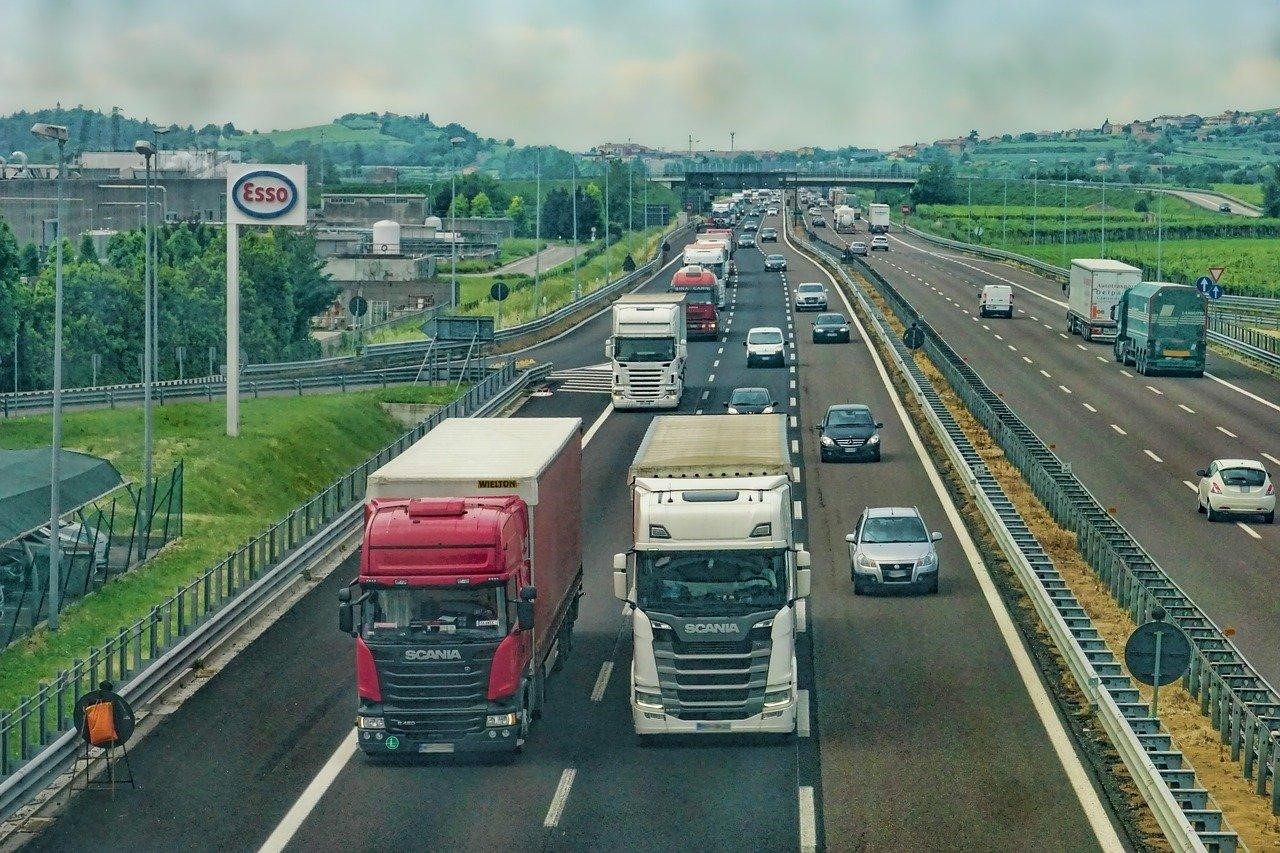Concerns about the trucking industry’s influence on legislation that restricts crash victims’ capacity to sue trucking corporations and caps plaintiff compensation have been expressed in response to recent legislative developments in states including Texas, Florida, and Iowa. These proposed restrictions, which are supported by lobbyists for the trucking sector, have prompted a contentious discussion between industry officials and safety activists.
Critics assert that the regulations shield trucking companies from real liability and disincentivize them from prioritizing safety measures, despite the industry’s claim that the laws’ goals are to stop frivolous litigation and excessive compensation. In this article, we’ll examine the implications of this state legislation.
The Need for Accountability and Compensation
Suing the trucking business and driver is frequently the only legal option open to survivors or the families of deceased victims following a truck accident. They are able to pursue compensation using this strategy in the event of severe injuries or a loved one’s passing. Laws that challenge crash victims are a product of the trucking industry’s influence on legislation. By restricting the information that can be used in court and limiting the responsibility of trucking businesses, these regulations make it more difficult for plaintiffs to prove a larger pattern of carelessness or systemic problems within an organization.
Texas
Texas, a state with a high number of truck-related fatalities, passed a law in 2021 that made it more difficult for crash victims to sue trucking companies. This law requires a bifurcated trial process, meaning trucking companies cannot be sued for their role in a crash unless the driver has been found liable by a court. The rationale behind this law, supported by the Texas Trucking Association, is to protect trucking companies from what they perceive as biased courtroom tactics and the unfair presentation of systemic safety concerns.
Previously, plaintiff attorneys could present evidence about a trucking company’s broader practices to demonstrate a systemic problem. However, under the new law, attorneys are more confined to presenting facts surrounding the specific accident and the company’s negligence in hiring or vehicle maintenance. Broader evidence about the company’s past practices can only be introduced if the driver or company is proven at fault, and the trial moves to the second phase. This change restricts the ability of crash victims to convey to the jury that the crashes were part of a larger issue, potentially limiting their ability to secure full compensation.
Florida
Florida, another state with a significant number of truck-related fatalities, passed a law in March that made various changes to civil litigation, affecting crash victims seeking legal recourse. One crucial change is the reduction of the statute of limitations from four to two years for personal injury cases. This shorter timeframe places an additional burden on crash victims, as they have a limited window to initiate legal proceedings and pursue accountability. The law also modified how medical bills are presented at trial. Previously, the amount initially billed could be admitted as evidence, but under the new law, only the amount paid is admissible.
These alterations, heavily supported by the Florida Trucking Association, aim to rebalance the legal system in favor of defendants and address what they perceive as excessive litigation. These changes can significantly impact truck accident victims, who may struggle to gather all necessary information, overcome the challenges of the aftermath, and initiate legal action within the restricted timeframe.
Iowa
Iowa passed a law in April that introduced caps on noneconomic damages awarded to plaintiffs in accidents involving commercial vehicles, including trucks. Under this law, the maximum amount of compensation for pain and suffering is set at $5 million, with exceptions for cases of extreme negligence, such as when the driver was intoxicated. Supported by the Iowa Motor Truck Association, this law aims to curb what the industry considers to be excessive profits for plaintiff lawyers and to create a more predictable legal environment.
Critics argue that capping noneconomic damages limits the ability of juries to determine appropriate compensation for the intangible losses experienced by crash victims, such as the loss of a child or the long-term emotional impact of the accident. By imposing these caps, the law may result in inadequate compensation for victims who have suffered significant non-monetary harm.
The Impact on Road Safety and Justice
The increase in deadly truck accidents in recent years emphasizes how crucial it is to hold negligent trucking corporations accountable and protect the rights of victims. Legislation that makes it more difficult to sue trucking corporations may have a substantial negative impact on traffic safety.
Diminished Incentive for Safety Measures
Trucking companies may be less likely to devote funds to driver training, vehicle upkeep, and deploying cutting-edge safety systems when the financial risk connected with accidents is reduced. Road safety may be affected as a result, increasing the likelihood of accidents and the catastrophic effects that go along with them.
It is essential to invest in driver training programs to make sure that truck drivers have the abilities and information required to operate their vehicles properly. Trucking businesses also may feel less pressure to enforce strict hiring requirements if their commercial vehicle liability is lessened. Because of this, there may be a workforce with insufficient training and experience, which could increase the risk of accidents and risky driving habits on the road.
Erosion of Deterrence
Trucking businesses may be less driven to prioritize safety standards and best practices if the financial costs of negligence are reduced. This may lead to a vicious cycle of carelessness and a reduction in overall road safety.
Limited Compensation for Victims
Limits on damages and restrictions on admissible evidence in court affect crash victims’ capacity to seek justice and lead to insufficient compensation for the severe economic, emotional, and physical losses they have suffered. The effects of a collision go well beyond the immediate period that follows it. Their impact on victims and their families lasts for years.
Caps on damages, which establish arbitrary restrictions on the worth of a victim’s pain, suffering, and loss, set an upper limit on the amount of compensation that may be given. It is crucial for the legal system to have the flexibility to determine the full degree of the losses and offer just compensation because every accident and its effects on the victims are different. These regulations make it harder for truck accident victims to rebuild their lives, pay their medical bills, and lessen the financial problems brought on by the accident.
Concealment of Company Negligence
Limiting the information that can be used as evidence in court, such as a trucking company’s record of mishaps or safety breaches, might keep juries from understanding the entire scope of its wrongdoing. This makes it more difficult for victims to make a thorough case and get just compensation.
Challenges in Pursuing Justice
The amount of time victims have to collect evidence, develop their case, and bring a lawsuit is lessened by shorter statutes of limitations provided by some states. The complicated aftermath of an accident frequently makes it challenging for victims to file a lawsuit within the allotted timeframe, depriving them of their right to seek redress.
Imbalanced Prioritization
These regulations place the rights and welfare of crash victims below the interests of the trucking industry. To make sure that justice is carried out and that road safety is given priority, it is necessary to strike a balance between fair commercial vehicle liability limitations and sufficient compensation.
Safety Advocates’ Perspective: Upholding Accountability and Deterrence
Safety advocates argue that holding trucking companies accountable for their actions is crucial for promoting road safety. The ability to sue trucking companies not only provides compensation to truck accident victims but also serves as a deterrent against negligent behavior. By limiting commercial vehicle liability and reducing the compensation that trucking companies are obligated to pay, these new laws weaken the deterrent effect and may send the message that safety can be compromised without significant consequences.
Safety advocates further emphasize the importance of preserving the right to present evidence related to a trucking company’s practices and history. This broader context is essential in establishing patterns of negligence, inadequate training, or systemic issues that may contribute to crashes. Removing or restricting this evidence from proceedings can hinder the ability to address underlying problems and prevent future incidents.
Moreover, safety advocates argue that by prioritizing industry interests over victim rights, these laws fail to address the fundamental goal of promoting a safer transportation system. Without proper accountability and consequences, trucking companies may be less inclined to invest in safety measures, driver training, and maintenance protocols, ultimately jeopardizing the well-being of all road users.
Final Thoughts
The recent state laws that make it harder to sue trucking companies after crashes have ignited a contentious debate about accountability, road safety, and access to justice. Critics argue that the trucking industry’s influence in shaping these laws undermines accountability and disincentivizes safety measures. Striking a balance between industry interests and victim rights is vital for maintaining a fair and just legal system.
SOURCES:
Civil Practice and Remedies Code. CHAPTER 72. LIABILITY OF MOTOR VEHICLE OWNER OR OPERATOR
Transport Topics. Florida Truckers Celebrate New Law Targeting Lawsuit Abuse.
The Iowa Legislature. Senate File 228.









